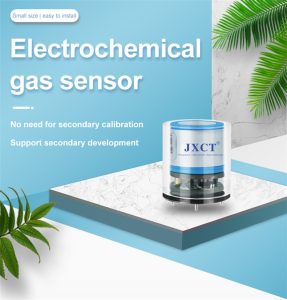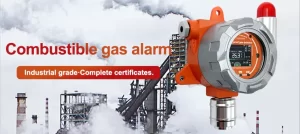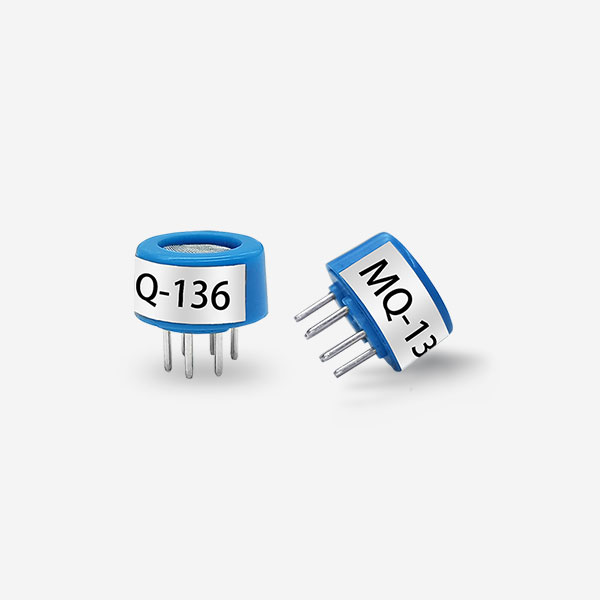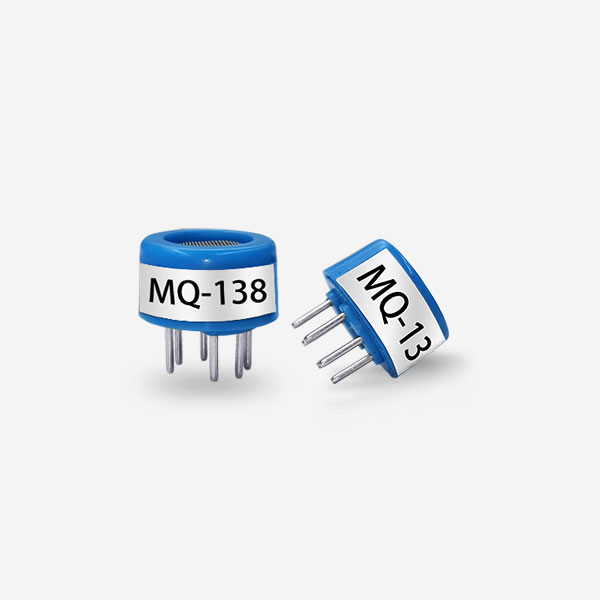Summary:
Hydrogen detector is a gas analysis instrument used to detect the concentration of hydrogen (H2) in the air. These analyzers are used for personal protection in hazardous gas environments. They also found hydrogen fuel cell facilities in industrial environments, battery storage centers. Hydrogen is an important alternative source of energy storage, but it can become dangerous if it leaks and accumulates indoors.
The gas sensor converts the detected hydrogen concentration into an electronic signal that is analyzed by an onboard microprocessor. From there the processor outputs the reading to the display. If the amount of H2 measured exceeds the preset value, an alarm will be triggered to warn the user. Other functions, such as instructing relays to turn on fans or ventilation systems, are also common.

What is a portable hydrogen detector?
Portable hydrogen detector is an instrument for analyzing hydrogen concentration in the air. These small gas detectors have a durable battery, a large screen showing hydrogen concentration, and a belt clip attached to your clothing. The device also features LED, vibration and buzzer alarms.
Hydrogen detectors are sometimes called hydrogen monitors, hydrogen sniffers, hydrogen analyzers, or hydrogen testers. These names all refer to hydrogen detectors.
What can a hydrogen detector measure?
The hydrogen detector detects hydrogen (H2) in the air and displays its concentration (PPM).
While most hydrogen detectors detect low PPM levels (0-1000 PPM), others are designed to measure higher levels of concentration %LEL.
What is hydrogen?
The chemical symbol for hydrogen is H2. It is a very light gas, a physically small compound that becomes very flammable at concentrations above 4%.
Since hydrogen is such a useful gas, its production has tripled since 1975. Its use in industries such as semiconductors, refining and renewable energy is driving growth. Its growth has also led to increased demand for gas detection instruments.
Hydrogen is also used in refining natural gas products, energy storage, as a coolant in power generation, and in the chemical industry, especially in the manufacture of ammonia (NH3).
Interestingly, hydrogen does not interact with the body and is non-toxic when inhaled. At high concentrations, however, it may replace oxygen levels and act as an asphyxiant.
Can I smell hydrogen?
No, hydrogen is not an aromatic gas, and the human nose cannot detect it.
What is the difference between hydrogen (H2) and hydrogen sulfide (H2S) gas?
There is one big difference.
Although their chemical notation is very similar, H2 and H2S are two very different gases. Click here to learn more about the hydrogen sulfide gas detector.
What types of hydrogen detectors are available?
Hydrogen detector for personal protection
Most hydrogen detectors are portable. These battery-powered gadgets contain a hydrogen sensor that clips to your clothing. These detectors provide continuous personal protection with LED, buzzer, and vibration alarms. Two varieties exist:
Low levels (0-1000 PPM): These detectors are used for early warning and are able to sniff out low levels of hydrogen. These units employ electrochemical sensors.
EX LEL (0-100% LEL): These detectors are made to display in the %LEL range. These devices use catalytic bead (combustible) sensors.
Hydrogen leak detector
The analyzer is a combustible gas leak detector that uses a semiconductor metal oxide sensor to detect small amounts of hydrogen (PPM).
Hydrogen leak detector
Catalytic bead (combustible) sensors are also very useful for hydrogen leak detection. EX 0-100% LEL with Pellistor sensor is very useful for detecting 100% hydrogen leaks. Due to the high H2 content, the use of other sensors may damage the sensor. When storing liquefied hydrogen, for example, finding hydrogen leaks can be a challenge. Low levels of 0-1000 PPM can also work, however, damage and poisoning may occur when the detector is 100% hydrogen. Therefore, we recommend our EX LEL% Analyzer built-in pump configuration for this application.

Stationary wall hydrogen monitor
Fixed wall mounted units provide continuous H2 protection. These devices are ideal for indoor environments, such as battery rooms or generator areas. If hydrogen concentrations rise above a pre-set threshold, the device will sound an alarm and automatically trigger the ventilation system.
 : +86 155 8830 2704
: +86 155 8830 2704 : jxdziot@gmail.com
: jxdziot@gmail.com
